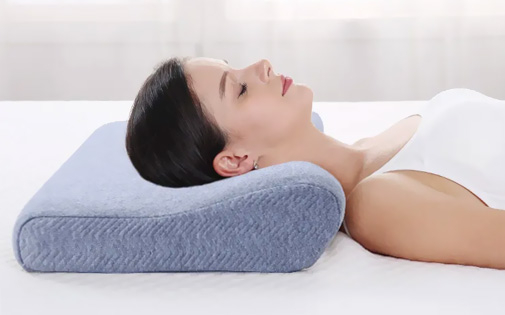
Snoring is the sound produced when air passes through the upper airways during sleep, causing the soft tissues around the throat to vibrate. During sleep, the area where the base of the tongue, the palate, and the uvula meet the throat narrows slightly. The intensity of the sound produced during breathing varies depending on how much the airway is narrowed.
A snoring pillow is an orthopedic product designed to address snoring problems. Its primary purpose is to keep the head in a certain position while sleeping, preventing the soft tissue in the neck from obstructing the airway.
While a snoring pillow may be effective for some patients, there is no scientific study proving its overall effectiveness in treating snoring. This is because the structure of the airways and the degree of narrowing vary from person to person. Snoring pillows are standardized and not customized to individual needs, so they may not be successful for everyone who snores.
Some snoring pillows force the person to sleep on their stomach. Although this sleeping position may prevent snoring, it has been observed to negatively affect breathing and circulation and may cause various spinal problems.
Snoring pillows that encourage back sleeping by keeping the head down can lead to issues such as "sleep paralysis" (also known as "night terrors") and "acid reflux."
The treatment for snoring involves eliminating the factors that cause it and making certain lifestyle changes. If there is an obstruction in the upper airways, surgical methods may be beneficial for the patient. Lifestyle changes such as avoiding alcohol and sleeping pills, losing weight, and not sleeping on the back can also be effective.
In some cases, the use of an "oral appliance" may be recommended. An oral appliance is a type of prosthesis made specifically for the individual by a dentist. It is worn before sleep to prevent the tongue from moving backward and to increase the oral cavity space. It has been shown to be effective in the treatment of snoring.




